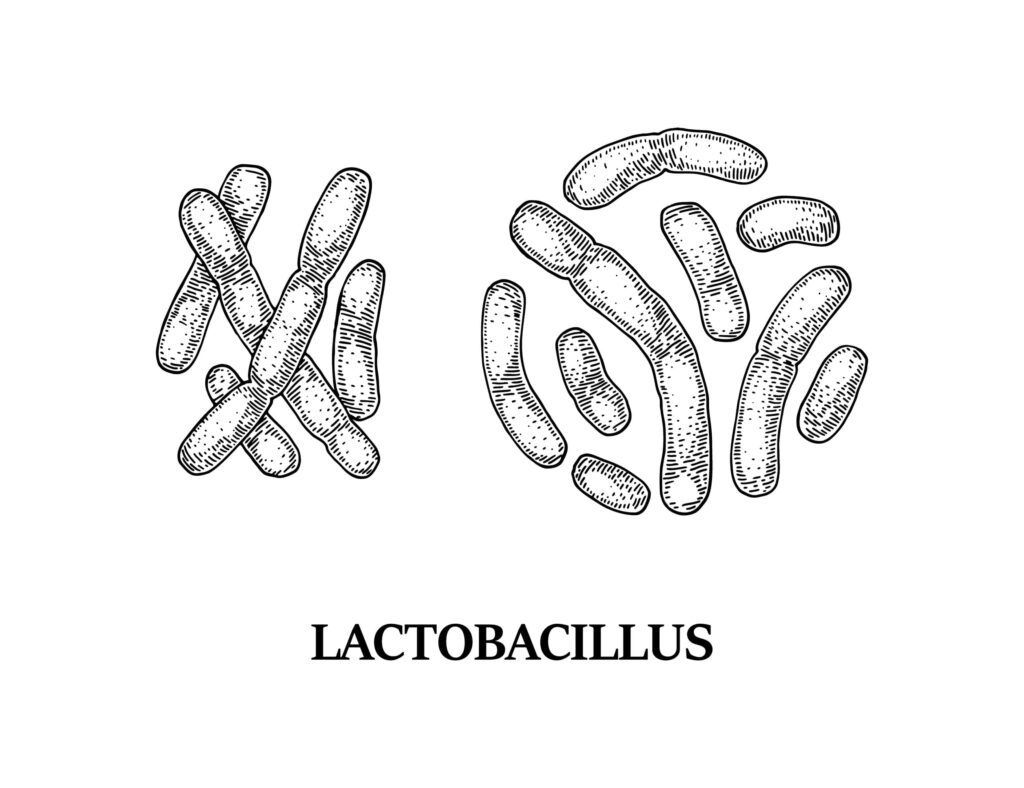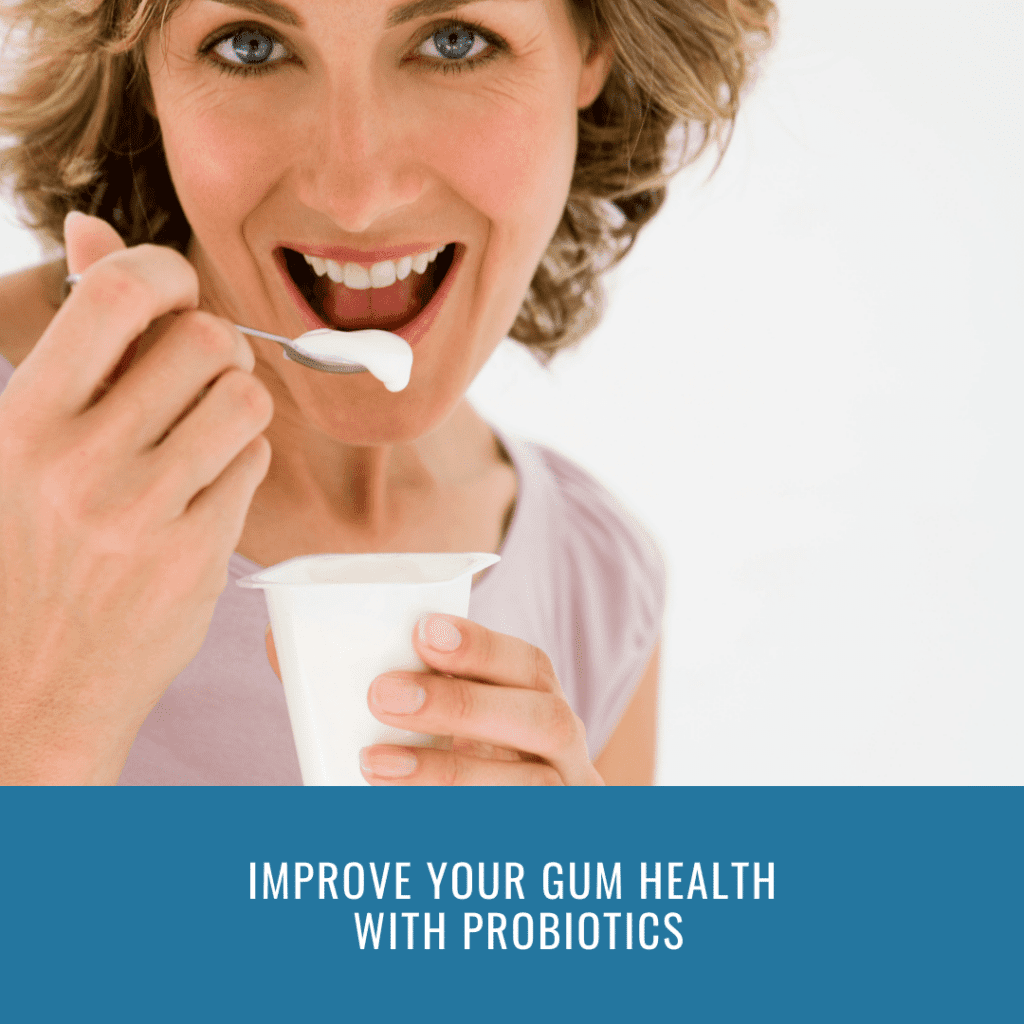Are your gums inflamed, bleeding, or receding? If so, you could be suffering from gum disease. Severe gum disease can lead to health complications, like heart attacks and strokes. The best way to avoid this dangerous condition is by taking care of your oral health with regular oral hygiene. Another way to decrease your risk is by using probiotics.
Probiotics are microorganisms that are present in foods or supplements intended to improve the health and equilibrium of bacteria in the digestive system. Simply stated, probiotics are good for your body because they help fight bad bacteria in order to maintain a balance between the good and bad bacteria. Besides providing balance in the digestive tract, they also offer other health benefits for the urinary tract, skin, lungs, and mouth.
There are many various forms of probiotics. Lactobacilli have been described as potentially helpful when it comes to your dental health. There are different forms of lactobacilli, including:

- Lactobacillus acidophilus
- Lactobacillus casei
- Lactobacillus fermentum
- Lactobacillus plantarum
- Lactobacillus rhamnosus
- Lactobacillus salivarious
These probiotics account for around 1% of cultivable oral bacteria and have been found to not only survive in saliva, but to adhere to the surface of the teeth and gums. This makes them ideal for improving oral health.
You see, gum disease is the result of excess bad bacteria that accumulates along the junction where the gums meet the teeth. Oral bacteria collects in dental plaque, then feeds off of the sugars from food particles that also become trapped within dental plaque. Although plaque can be removed with proper brushing and flossing techniques, there are cases where some plaque may be left behind. When this plaque is not removed, it will continue to accumulate and eventually harden into tartar.
When plaque and tartar accumulate along the gums, this causes the gum tissue to become inflamed. This initiates an inflammatory response in the gums that causes them to pull away from the bacteria, and the teeth. This is known as gum recession and it causes pockets to form that unfortunately attract more bacteria. As more bacteria accumulates within the gum pockets, it will eventually overwhelm the mouth’s defense system and pass through to the jaw bone. Unfortunately once the bone has become affected, gum disease can cause bone deterioration and tooth loss.
Because of their ability to fight bad bacteria in the gut, researchers have evaluated the efficacy of probiotics against the bacteria responsible for gum disease. While this area of research is still new, there is evidence that probiotics can be beneficial to the treatment of gum disease. At a glance, here is a brief description of what some studies have found:
- people with chronic periodontitis have lower levels of L. gasseri and L. fermentum, than people with healthy gums
- L. gasseri and L. fermentum are able to prevent growth of the bacteria responsible for gum disease
- L. reuteri and L. brevis as being potentially effective in the treatment of gum disease.
The study looking at L. reuteri and L. brevis used L. reuteri in chewing gum and L. brevis in lozenges for a specific amount of time to see how it would affect people with gum disease. It was observed that the amount of plaque had decreased and that inflammation had improved at the end of the designated time period.
It is important to note, however, that while the research suggests probiotics can be beneficial for treating gum disease, they should not be used as the sole treatment. Bacterial reduction through proper brushing, flossing, and teeth cleanings is still the most effective way to prevent or treat gum disease. However, adding probiotics to your daily routine can also prove the be beneficial. In conclusion, probiotics are a great way to improve your overall health, but they can also serve as an effective treatment for gum disease in addition to good oral hygiene. For more information on whether probiotics can benefit your gum health, talk to your local dentist at your next dental check up and cleaning appointment.


